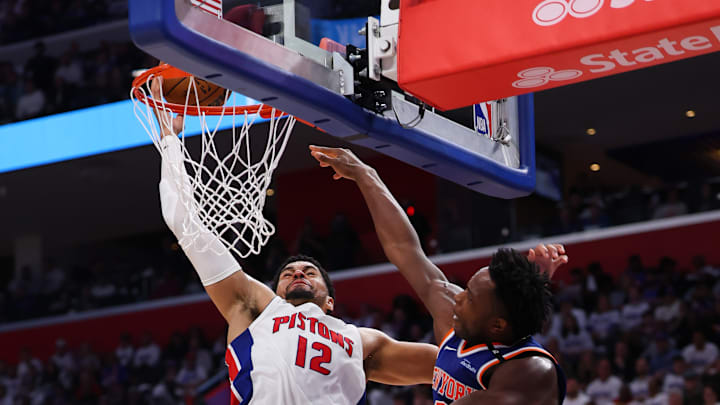Tobias Harris has been in the NBA for a long time. He is now entering his 15th season and has played for five different teams. For most of that time, he has been pretty much the same player but his perception around the league has varied a lot based on his given role and contract.
Harris was originally drafted in 2011 by the Milwaukee Bucks and spent a season and a half there before being traded to the Orlando Magic, where he first broke out. He went from averaging about five points per game in Milwaukee to 15 points per game in Orlando over the next 4 seasons. He was then traded to the Pistons for his first stint in Detroit. In this time, he reached another level and got up to 18 points per game on 40% shooting from three in 2018 before being included in the Pistons’ trade package for Blake Griffin.
Now on the Clippers, Harris entered fringe All-Star conversations as his scoring reached 20 ppg and he continued his hot shooting (42% from three over two years in LA). Finally, Harris was the centerpiece of a multi-player deal that sent him to the Sixers in exchange for role players and future draft capital.
The Sixers viewed him as part of their “big 4” and wanted to go all-in to build a contender around Joel Embiid and Ben Simmons. We all know how that turned out: the Sixers offered Harris a max contract the following summer and did not have enough cap space left over to re-sign the other member of their big four, Jimmy Butler. Butler went on to lead the Miami Heat to two finals and turned Harris into a meme when he said “Tobias Harris over me??!!” after eliminating the Sixers in the 2022 playoffs.
Detroit Pistons: Different role equals differenet perception for Tobias Harris
Harris’ tenure in Philly was considered a disappointment and he was continuously mocked online for falling short in the playoffs and not living up to his contract. Now, he’s returned to the Pistons on a much more affordable contract and provided veteran leadership in a historic turnaround. In Philly, he was expected to be a key scorer on a championship contender and be a lights-out spot up shooter, but that was not a role he was able to succeed in. In his second stint in Detroit, he has been asked to be a stabilizing force in the half court offense and contribute on the defensive end as a physical big.
Even though Harris’ box score numbers aren’t super impressive on the Pistons, and arguably even worse than his numbers on the Sixers, expectations and impact are everything. He has been a steady veteran leader for a young Pistons team who needed that presence. And his cheaper contract means he has provided good value for the team.
There are only a handful of players in the NBA who can contribute in the same dominant fashion regardless of the team circumstances around them. For the rest of the league, role and value make all the difference in how they are perceived and perform. Another key example in recent years is Aaron Gordon, who went from struggling in Orlando as the lead creator to becoming a championship role player in Denver by focusing more on defense and finishing plays off of others.
